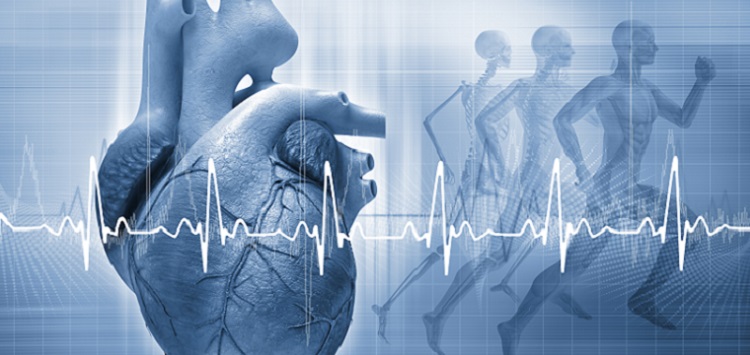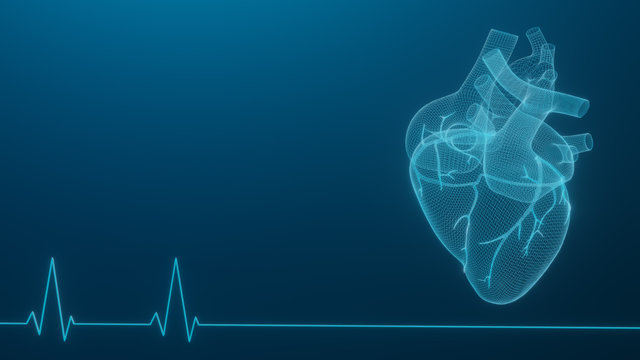How Cardiology care protects your cardiovascular health long-term
How Cardiology care protects your cardiovascular health long-term
Blog Article
Comprehending the Importance of Cardiology in Modern Medical Care Services
Cardiology plays an important duty in contemporary healthcare, specifically as cardiovascular disease remains to be the leading reason for mortality worldwide. Developments in diagnostics and treatment have transformed client care, making it possible for earlier interventions and boosted outcomes. Moreover, the shift towards precautionary cardiology empowers individuals to manage their wellness proactively. As innovation remains to advance, the combination of ingenious services may additionally redefine cardiology's influence on public wellness, prompting a closer exam of emerging patterns and their implications.
The Occurrence of Cardiovascular Disease and Its Effect On Public Wellness
Heart disease remains the leading reason of fatality globally, its effect expands much beyond individual patients to affect public health systems and economies. The high frequency of cardiovascular disease places a significant pressure on health care resources, necessitating raised financing for avoidance, rehab, and treatment programs. Public health and wellness initiatives have to deal with danger aspects such as obesity, smoking cigarettes, and less active way of livings, which contribute significantly to the increasing incidence of heart conditions.Moreover, the economic problem connected with heart condition is enormous, encompassing not just straight clinical expenses however likewise indirect costs connected to shed efficiency and early mortality. Neighborhoods face obstacles in taking care of these prices, frequently resulting in differences in medical care accessibility and results. As the populace ages and lifestyle-related dangers remain to rise, the urgency for effective cardiology treatments ends up being critical. Subsequently, resolving heart illness is not just a matter of private health yet likewise a crucial public health concern.
Advancements in Heart Diagnostics and Imaging Techniques
Recent advancements in cardiac diagnostics and imaging techniques have revolutionized the area of cardiology, enhancing the ability to keep track of and detect heart conditions. Methods such as heart MRI, CT angiography, and echocardiography have actually ended up being significantly innovative, giving in-depth pictures of heart frameworks and features. These modalities permit the very early identification of conditions like coronary artery illness, heart failure, and valvular disorders.Moreover, advancements in non-invasive diagnostics, such as wearable innovation and remote surveillance devices, have actually empowered people and health care suppliers. These devices facilitate real-time monitoring of heart rhythms and various other crucial indications, resulting in timely interventions. Additionally, synthetic intelligence is being incorporated into imaging evaluation, boosting precision and effectiveness in diagnosis.
Technologies in Treatment Options for Heart Conditions
Current advancements in cardiology have led to significant innovations in therapy choices for heart conditions. These consist of sophisticated surgical strategies that improve step-by-step end results and arising medicines that supply brand-new avenues for treatment. As the field evolves, these developments play an essential function in improving person care and results.
Advanced Surgical Techniques
Developments in surgical methods have transformed the landscape of cardiology, using new wish for patients with heart disease. Minimally intrusive procedures, such as catheter-based treatments, have substantially minimized recovery times and hospital keeps. Strategies like robotic-assisted surgical procedure boost precision, enabling surgeons to navigate complicated physiological structures with higher precision. Innovations in imaging innovation help with real-time visualization during treatments, boosting outcomes. Transcatheter aortic shutoff substitute (TAVR) exemplifies an innovation in dealing with aortic constriction, allowing shutoff substitute without open-heart surgical treatment. Furthermore, hybrid strategies that incorporate medical and catheter-based approaches give tailored solutions for various cardiac problems. These innovative surgical methods not just improve client security however additionally expand treatment options, emphasizing the vital duty of advancement in modern cardiology practices.
Emerging Medicines and Therapies
As the landscape of cardiology remains to evolve, arising medicines and treatments play an essential role in enhancing therapy options for heart disease. Advancements such as unique anticoagulants and progressed lipid-lowering agents have actually transformed the administration of cardiovascular conditions, significantly decreasing client morbidity and mortality. In addition, the development of gene therapies and regenerative medication uses promising avenues for dealing with problems previously considered incurable. Clinical tests are consistently revealing the efficacy of these therapies, pressing the borders of typical therapies. Furthermore, the assimilation of electronic health and wellness innovations facilitates customized medicine, permitting tailored treatment strategies based upon hereditary and way of living factors. Jointly, these advancements emphasize the vibrant nature of cardiology, enhancing patient end results and redefining criteria of care in modern health care.
The Function of Preventive Cardiology in Patient Care
Precautionary cardiology plays a crucial duty in person care by concentrating on the recognition of threat aspects that add to heart problem. Through way of living adjustment strategies and early detection methods, doctor can efficiently lower the occurrence of cardio occasions - Cardiologist near me. This aggressive approach not just enhances individual outcomes however also advertises long-term health
Danger Variable Recognition
While heart diseases continue to be a leading cause of morbidity and death worldwide, reliable threat element recognition works as a foundation of preventive cardiology. Identifying risk factors such as hypertension, household, hyperlipidemia, and diabetes history is vital for very early intervention. Healthcare professionals use different evaluating approaches to review these elements, permitting tailored safety nets. Additionally, understanding a person's lifestyle choices, such as smoking cigarettes and physical inactivity, additionally notifies danger analyses. This detailed analysis makes it possible for medical professionals to establish personalized care strategies targeted at mitigating risks. By focusing on threat aspect identification, health care systems can improve client end results and reduce the total burden of cardio diseases, inevitably adding to improved public health approaches and resource allowance.
Way Of Life Adjustment Approaches
A wide range of studies highlights the important function of lifestyle adjustment techniques in decreasing heart disease threat. These methods encompass nutritional adjustments, boosted exercise, smoking cessation, and weight administration. By taking on a heart-healthy diet plan abundant in fruits, vegetables, whole grains, and lean proteins, people can decrease cholesterol degrees and blood pressure. Routine exercise strengthens the heart and boosts general cardiovascular wellness. Furthermore, quitting smoking cigarettes greatly decreases the danger of cardiovascular disease and enhances healing rates for those with present problems. Weight administration even more adds to cardiovascular wellness by reducing various other threat variables such as diabetic issues and hypertension. Executing these way of life alters not only advertises private wellness however additionally offers as a foundation of preventative cardiology in person care.
Early Discovery Methods
Way of life adjustments significantly add to reducing heart disease risks, however they are most efficient when coupled with early detection strategies. Precautionary cardiology highlights the value of determining potential heart problems prior to they intensify right into serious conditions. Techniques such as high blood pressure tracking, cholesterol testing, and advanced imaging technologies like echocardiograms play important roles in assessing cardiovascular health and wellness. Biomarkers and genetic testing likewise boost the accuracy of very early detection, allowing for tailored preventive strategies. Routine heart threat examinations encourage health care service providers to intervene proactively, potentially preventing cardiac arrest and strokes (Cardiology Jupiter). By incorporating these very have a peek at these guys early detection methods into regular care, clients can benefit check it out from prompt way of living interventions and targeted treatments, inevitably improving and improving results lifestyle
Integrating Modern Technology Into Cardiology Practices
As improvements in technology continue to improve numerous areas, the assimilation of ingenious tools and systems right into cardiology practices has become necessary for improving person treatment and outcomes. Telemedicine platforms permit cardiologists to check patients remotely, boosting access to care while minimizing the problem on healthcare facilities. Wearable tools, such as smartwatches, allow constant heart price surveillance, signaling both medical professionals and individuals to prospective issues in real-time. Furthermore, expert system (AI) is being utilized to evaluate large quantities of heart data, assisting in early medical diagnosis and individualized treatment plans. Advanced imaging techniques, including 3D echocardiography, improve visualization of heart frameworks, resulting in more precise interventions. Digital health records (EHRs) improve individual information management, making sure that cardiologists have immediate accessibility to essential information. With each other, these technical improvements are transforming cardiology, promoting proactive management and improved health outcomes for clients with cardio conditions.
The Relevance of Individual Education And Learning and Engagement
Individual education and learning and involvement play a pivotal duty in the monitoring of cardio health. By gearing up people with understanding regarding their conditions, treatment choices, and way of life changes, doctor equip individuals to take an energetic function in their care. This aggressive approach can cause boosted adherence to recommended medicines, dietary changes, and workout regimens, eventually lowering the threat of complications.Engagement also fosters a solid patient-provider relationship, urging open interaction and trust fund. When individuals really feel educated and included, they are more most likely to voice worries and ask concerns, which can bring about better clinical results. Furthermore, instructional sources, such as workshops or electronic platforms, can enhance understanding and promote self-management approaches. In general, prioritizing person education and learning and involvement is important for improving cardio wellness, enhancing lifestyle, and minimizing healthcare expenses linked with cardiovascular diseases.
Future Trends in Cardiology and Their Potential Impact

Regularly Asked Inquiries
What Way Of Life Modifications Can Reduce Heart Disease Risk?
The present concern addresses way of living adjustments that can significantly decrease heart problem danger. Cardiology Jupiter. Taking on a well balanced diet, engaging in normal exercise, maintaining a healthy weight, taking care of stress, and staying clear of cigarette can significantly enhance cardio health and wellness
Just How Can I Recognize Early Indications of Heart Troubles?
Identifying very early indications of heart troubles involves tracking symptoms such as breast pain, lack of breath, exhaustion, and irregular heartbeat. Prompt recognition of these indicators can motivate needed clinical evaluation and intervention for far better results.
What Are the Distinctions Between Cardiologists and Heart Surgeons?
The differences between cardiologists and cardiac surgeons exist in their duties; cardiologists mostly diagnose and take care of heart conditions with non-invasive methods, while heart useful reference cosmetic surgeons do procedures to fix architectural heart issues. Each plays an important, unique duty.

How Commonly Should I Get My Heart Health And Wellness Checked?
The frequency of heart medical examination varies based on private threat factors. Generally, grownups must undertake evaluations every one to two years, while those with present conditions might call for more regular analyses as advised by medical care specialists.
What Duty Does Genes Play in Heart Problem Danger?
Genetics greatly affects cardiovascular disease threat, with familial patterns indicating inherited problems. Certain genetics can incline individuals to high blood pressure, cholesterol issues, and various other cardiovascular issues, highlighting the value of hereditary testing in evaluating heart wellness. Heart illness continues to be the leading reason of death worldwide, its effect extends far past individual patients to affect public health systems and economic climates. Public health campaigns should attend to risk variables such as weight problems, cigarette smoking, and sedentary way of livings, which add greatly to the increasing incidence of heart conditions.Moreover, the economic problem connected with heart disease is tremendous, including not only straight medical prices however likewise indirect costs related to shed efficiency and premature death. Precautionary cardiology plays an essential role in individual treatment by focusing on the recognition of risk elements that add to heart disease. Fabricated intelligence (AI) and maker learning are boosting diagnostics and client surveillance, enabling early detection of heart illness. The differences in between cardiologists and heart doctors lie in their roles; cardiologists primarily handle and identify heart conditions via non-invasive approaches, while heart cosmetic surgeons execute surgical procedures to remedy structural heart problems.
Report this page